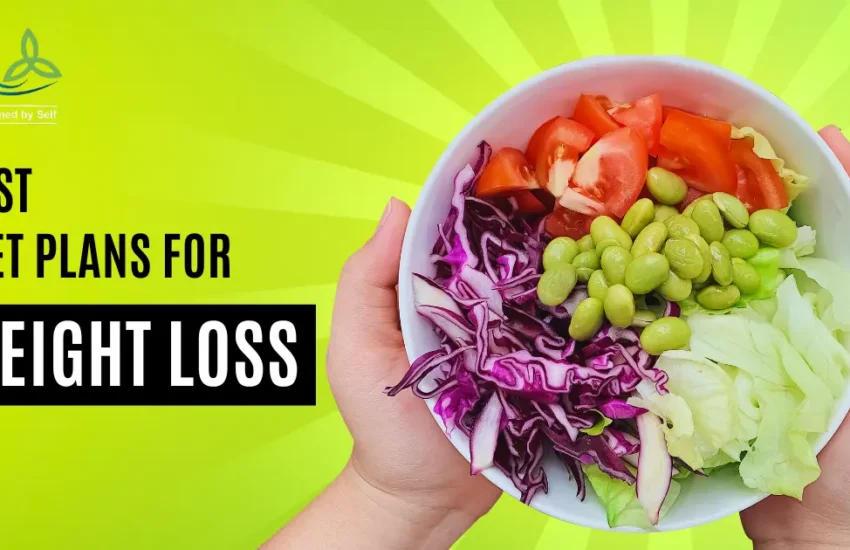What to Eat on Diet for Optimal Health and Weight Loss?

While being on diet, what food items you can eat and what you can avoid is a very big question? In this article we will explore about the food that you can consider for daily intake.
Quick Links
ToggleIntroduction: Understanding the Importance of Proper Nutrition on a Diet
Proper nutrition plays a pivotal role in achieving and maintaining a healthy lifestyle. Whether you are following a specific diet plan or aiming for weight loss, understanding the importance of nutrition is crucial.
A balanced diet not only provides the necessary nutrients but also supports overall well-being.
When it comes to starting a diet journey, it’s essential to focus on healthy eating habits rather than restrictive measures.
By incorporating nutritious foods into your daily routine, you can fuel your body with the right nutrients while enjoying a variety of delicious meals.
In this section, we will delve deep into the importance of proper nutrition on a diet and explore how it contributes to your overall health and well-being.
We will discuss the key components of a balanced diet, the benefits it brings, and practical tips to help you make informed choices when it comes to your dietary habits.
So, whether you’re looking to shed those extra pounds or simply maintain a healthy weight, join us as we unravel the vital role that proper nutrition plays in achieving your goals and living a vibrant life.
Exploring the Top Foods to Include in Your Diet for Weight Loss and Overall Well-being
By incorporating the right foods into your diet, you can nourish your body while also supporting your weight loss goals.
One of the top food categories to focus on is low calories foods. These are typically high in nutrients and help you feel satisfied without consuming excessive calories. Additionally, incorporating high protein foods into your diet can promote muscle growth and repair.
To ensure a well-rounded approach to your diet, it’s important to include a variety of nutritious foods. This includes fruits and vegetables, whole grains, lean proteins, healthy fats and more such healthy food.
The Power of Lean Proteins
Tofu, beans and legumes offer an excellent source of lean protein. They are not only rich in protein but also provide essential amino acids, fiber, vitamins, and minerals, necessary for systemic bodily function.
With options like lentils, chickpeas, black beans, and kidney beans available, there’s no shortage of variety when it comes to incorporating these nutritious foods into your diet.
Whether you’re aiming to build muscle mass or simply maintain a healthy lifestyle, incorporating lean proteins into your meals can have significant benefits.
Incorporating Fiber-rich Foods
Fiber-rich foods not only provide numerous health benefits, but also aid in weight management and support digestive health.
Key sources of dietary fiber are:
- Fruits: Berries, Apples, and Pears
- Vegetables: Broccoli, Carrots, and Spinach
- Whole Grains: Barley, Cereals, Brown Rice, Brown Bread
- Nuts: Almonds, Walnuts,
- Seeds: Chia seeds, Flaxseeds
These fibre-rich foods into your diet not only helps with digestion but also aids in weight management by promoting feelings of fullness and reducing cravings.
The Importance of Complex Carbohydrates
Complex carbohydrates are an essential component of a healthy diet, and they play a crucial role in supporting overall well-being and effective weight management.
It’s important to note that not all carbohydrates are created equal. While complex carbohydrates like whole grains, legumes, and vegetables are highly beneficial, refined and processed carbohydrates (white bread, sugary cereals, pastries, etc.) should be limited in a healthy diet.
Balancing your carbohydrate intake with other macronutrients (protein and healthy fats) and controlling your overall calorie consumption is key to successful weight management and overall health.
Avoid junk food, sugary beverages, processed snacks, refined grains and fried foods While on a Diet to Maximise Results
Avoiding junk food, sugary beverages, processed snacks, refined grains, and fried foods is a sound strategy when you’re on a diet aimed at gaining muscle or weight in a healthy way.
These types of foods are often high in empty calories, unhealthy fats, added sugars, and low in essential nutrients
Here’s why you should avoid them:
Empty Calories: Junk food, sugary beverages, and processed snacks are typically high in calories but lack essential nutrients like vitamins, minerals, and fibre. Consuming empty calories can lead to weight gain without providing the nourishment your body needs.
Blood Sugar Spikes and Crashes: Sugary beverages and foods with refined grains can cause rapid spikes in blood sugar levels followed by crashes. This can lead to increased hunger and cravings, making it harder to control your food intake.
Unhealthy Fats: Fried foods and many junk foods are often fried in unhealthy oils, which are high in saturated and trans fats. These fats can contribute to weight gain and increase the risk of heart disease.
Processed Ingredients: Processed snacks often contain artificial additives, preservatives, and flavorings that may not be conducive to a healthy diet. These additives can have negative effects on your overall health.
Hydration Issues: Sugary beverages like soda and energy drinks can contribute to dehydration and provide no nutritional benefit. Water or healthier beverages like herbal tea or plain, unsweetened drinks are better choices for staying hydrated.
Tips for Meal Planning on a Diet: How to Make Healthy Eating Convenient and Sustainable
Meal planning is a key strategy for making healthy eating convenient and sustainable. It helps you stay on track with your dietary goals, save time, and reduce the temptation to make unhealthy food choices.
Initially meal planning can take some time and effort, but it pays off in the long run by making healthy eating more convenient and sustainable.
Here are the some tips to help you with meal planning on a diet:
Create a Weekly Menu: Plan your meals for the week ahead. Include breakfast, lunch, dinner, and snacks. Having a menu in place will make grocery shopping and meal preparation easier.
Balance Macronutrients: Aim for a balance of carbohydrates, proteins, and healthy fats in each meal. This helps you stay satisfied and provides essential nutrients.
Choose Whole Foods: Focus on whole, unprocessed foods like fruits, vegetables, whole grains, lean proteins, and healthy fats. These foods are nutrient-dense and support your health goals.
Portion Control: Be mindful of portion sizes. Use measuring cups, a food scale, or visual cues to help you portion out your meals accurately.
Mindful Snacking: Include healthy snacks like nuts, Greek yogurt, or cut-up veggies and hummus. Having these options readily available can prevent you from reaching for less healthy choices.
Hydration: Don’t forget about beverages. Stay hydrated with water and limit sugary drinks and excessive caffeine.
Account for Treats: It’s okay to include occasional treats in your meal plan. Moderation is key, and allowing yourself a treat can help you stay on track long-term.
Track Progress: Keep a food journal or use a diet-tracking app to monitor your progress and ensure you’re meeting your dietary goals.
Seek Expert Advice: Consider seeking the help of a registered dietitian or nutritionist who can provide personalized guidance and meal plans based on your specific needs and goals.
Conclusion
Remember one proverb? Slow and steady wins the race! You would have read it in your school term. Similarly gradually shifting to a diet plan would help you reap the maximum benefits and lead a healthy lifestyle.
By choosing nutrient-dense foods, practicing portion control, and prioritizing balanced meals, you can easily achieve your health and wellness goals.
It’s not about perfection but about making sustainable choices that support your overall health and well-being. Embrace the journey towards a healthier you, and the long-term rewards will be well worth it.


I’ve been surfing on-line greater than three hours these days, but I never discovered any interesting article like yours. It is beautiful value enough for me. In my view, if all webmasters and bloggers made excellent content material as you did, the internet will likely be a lot more useful than ever before. “We are not retreating – we are advancing in another Direction.” by Douglas MacArthur.
@Zoritoler, thank You for your lovely feedback. Keep reading and writing to us on our future blogs.